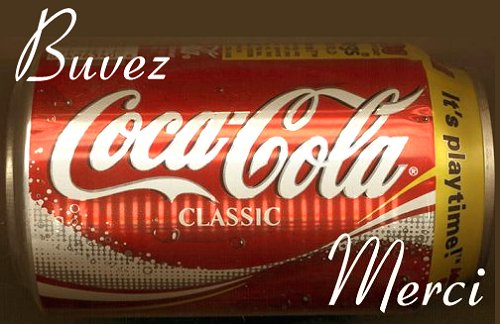Coca-Colanizing France
Today, our guest, historian Rob Zaretsky, Coca-Colanizes France. The University of Houston's College of Engineering presents this series about the machines that make our civilization run, and the people whose ingenuity created them.
Ah, spring in Paris! Walking along the Seine, passers-by admire France's greatest monument: Notre Dame Cathedral. They gaze at the sublime western façade. Framed by the gargoyles and Rose Window is the tableau of a monumental ... bottle. Blazoned across it is our age's eleventh commandment: Drink Coca Cola.
Fiction? Of course. But in the early 1950s, France thought it would soon be fact. The nation was then swept by the perfect storm. At odds were two nations: one recently battered by war and occupation, yet clinging to its venerable civilizing mission. The other recently triumphant in war and dedicated to its commercializing mission. And the storm raged around that sweet, artificial drink that, more than any other product, reflected American culture and society.
Created in the 1880s as a pseudo-medicinal drink, Coca-Cola met no actual human need. As a result, it was promoted by massive ad campaigns: signs, special delivery trucks and snappy slogans. As such, Coca-Cola can be rightly considered, as one of the company's presidents declared, to be "the essence of capitalism." It was also the essence of American advertising chutzpah.
Barricades threatened to appear in Paris when it became known that Coca-Cola requested a license to bottle their drink there. Communists wondered if France would allow itself to "Coca-Colanized." Conservatives were equally appalled. Is the company, they asked, serving as a front for a spy ring? Winegrowers suggested that Coca-Cola was, if not a poison, certainly addictive. Why else, they concluded, would the company encourage free tasting at public events? With such paranoid logic a billboard on Notre Dame seemed reasonable.
When the French government refused to grant the license, America exploded. Coke's president, James Farley, reminded the French that his drink "was not injurious to the health of American soldiers who liberated France from the Nazis." An American editorialist noted that Coke tasted of democracy. While vodka fuels revolution, he wrote "it is utterly fantastic to imagine two men ordering ... Cokes ... to toast the downfall of their capitalist oppressors"
By 1952, the French government finally granted Coca-Cola its license. Yet, the French continued to resist. In 1953, only a sixth of the French said that they liked Coca-Cola "a lot", while two thirds did not like it at all. Even today, on a per capita ba-sis, fewer French drink Coca-Cola than any other Western European country.
The newspaper Le Monde explained the affair's symbolism: Coke heralded a new world threatening to eclipse France. America was everything France was not: a mass, urban, consumer society indifferent to the past and enthralled by the future. France has, of course, become more like us in many ways. Yet the distance still to be crossed can be measured by -- the pause that refreshes.
I'm Rob Zartetsky, at the University of Houston, where we're interested in the way inventive minds work.
Robert Zaretsky is professor of French history in the University of Houston Honors College, and the Department of Modern and Classical Languages.
R. Kuisel, Seducing the French: The Dilemma of Americanization.(University of California Press, Berkeley, 1993).
